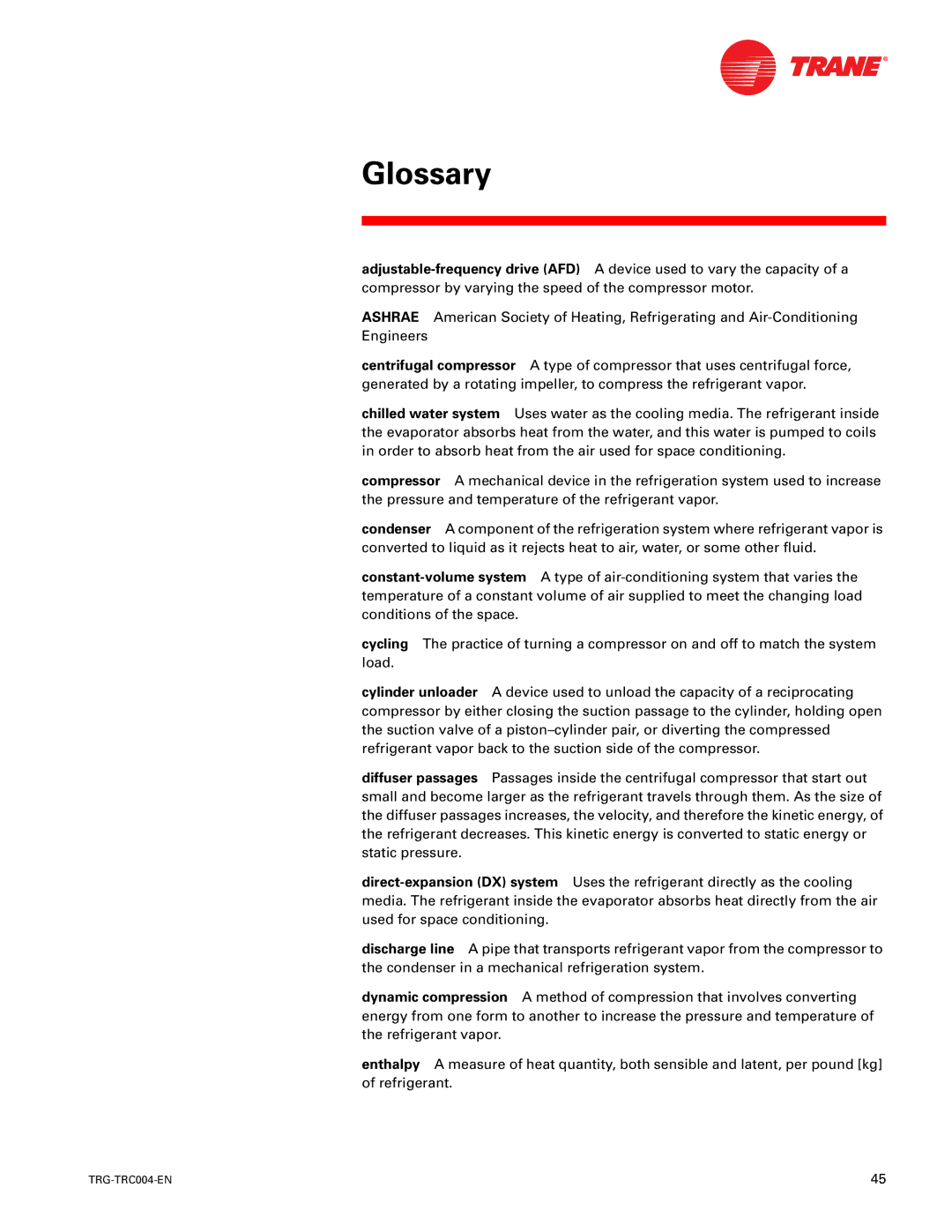
Glossary
ASHRAE American Society of Heating, Refrigerating and
centrifugal compressor A type of compressor that uses centrifugal force, generated by a rotating impeller, to compress the refrigerant vapor.
chilled water system Uses water as the cooling media. The refrigerant inside the evaporator absorbs heat from the water, and this water is pumped to coils in order to absorb heat from the air used for space conditioning.
compressor A mechanical device in the refrigeration system used to increase the pressure and temperature of the refrigerant vapor.
condenser A component of the refrigeration system where refrigerant vapor is converted to liquid as it rejects heat to air, water, or some other fluid.
cycling The practice of turning a compressor on and off to match the system load.
cylinder unloader A device used to unload the capacity of a reciprocating compressor by either closing the suction passage to the cylinder, holding open the suction valve of a
diffuser passages Passages inside the centrifugal compressor that start out small and become larger as the refrigerant travels through them. As the size of the diffuser passages increases, the velocity, and therefore the kinetic energy, of the refrigerant decreases. This kinetic energy is converted to static energy or static pressure.
discharge line A pipe that transports refrigerant vapor from the compressor to the condenser in a mechanical refrigeration system.
dynamic compression A method of compression that involves converting energy from one form to another to increase the pressure and temperature of the refrigerant vapor.
enthalpy A measure of heat quantity, both sensible and latent, per pound [kg] of refrigerant.
| 45 |
